Social development for 5 year olds
Milestones for 5-Year-Olds – Health Information Library
Overview
Children usually progress in a natural, predictable sequence from one developmental milestone to the next. But each child grows and gains skills at their own pace. Some children may be advanced in one area, such as language. But they may be behind in another area, such as sensory and motor development.
Milestones usually are grouped into five major areas: physical growth, cognitive development, emotional and social development, language development, and sensory and motor development.
Physical growth and development
Most children by age 5:
- Have gained about 4.4 lb (2 kg) and grown 1.
5 in. (4 cm) to 2 in. (5 cm) since their fourth birthday.
Go to www.cdc.gov/growthcharts to see the high and low percentiles for normal weight and growth.
Thinking and reasoning (cognitive development)
Most children by age 5:
- Know their address and phone number.
- Recognize most letters of the alphabet.
- Can count 10 or more objects.
- Know the names of at least 4 colors.
- Understand the basic concepts of time.
- Know what household objects are used for, such as money, food, or appliances.
Emotional and social development
Most children by age 5:
- Want to please and be liked by their friends, though they may sometimes be mean to others.
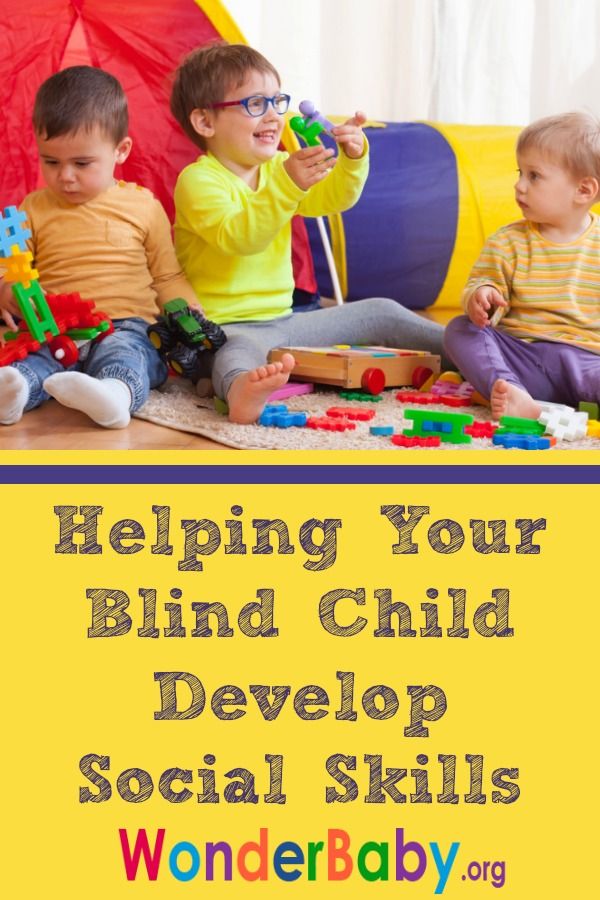
- Agree to rules most of the time.
- Show independence.
- Are more able to distinguish fantasy from reality. But they enjoy playing make-believe and dress-up.
- Have distinct ways of playing. Some children play in rough or physically active ways. Other children of the same age are more likely to engage in social play.
Language development
Most children by age 5:
- Carry on a meaningful conversation with another person.
- Understand relationships between objects, such as "the boy who is jumping rope."
- Use the future tense, such as "Let's go to the zoo tomorrow!"
- Often call people (or objects) by their relationship to others, such as "Bobby's mom" instead of "Mrs. Smith.
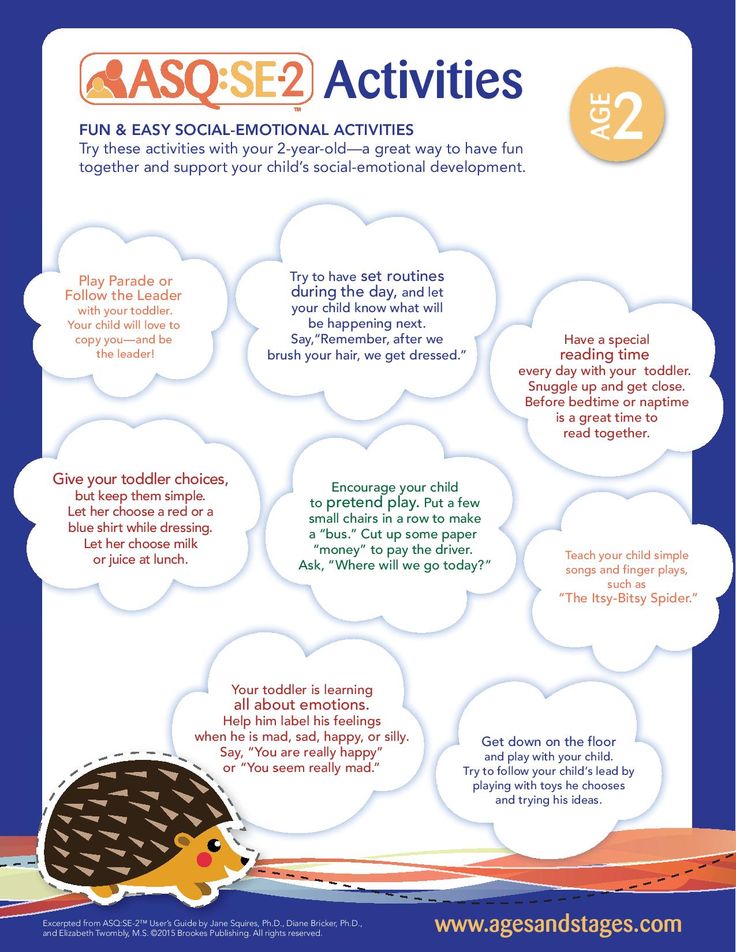 "
" - Talk about or tell stories. They have little or no trouble being understood by others.
Sensory and motor development
Most children by age 5:
- Somersault and possibly skip.
- Swing and climb.
- Hop on one foot.
- Use the toilet by themselves. They may still wet the bed, though.
By age 5, most children can use their hands and fingers (fine motor skills) to:
- Copy triangles and other geometric shapes.
- Draw a person with a head, a body, arms, and legs.
- Dress and undress on their own. But they may still need help to tie their shoelaces.
- Write some lowercase and capital letters from the alphabet.
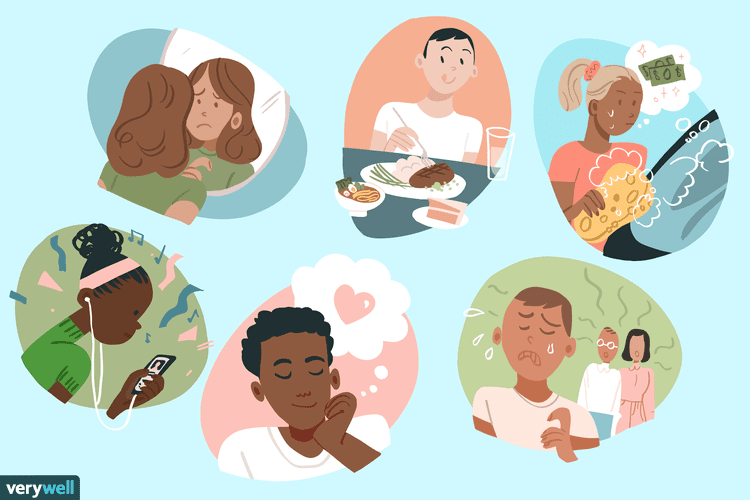
- Eat with a fork, spoon, and maybe a flatware knife.
Credits
- Top of the page
-
Next Section:
Related Information
Health Information Library
Child development from 5-6 years
Child development at 5-6 years: what’s happening
Playing and learning
Even as children get older and start school, play is important. It’s still how children learn and build social, emotional and thinking skills.
Your child’s pretend play is more complex now, filled with fantasy and drama. You might also notice that your child can play with others to achieve a common goal – for example, working together to build one big sandcastle. And your child might understand if another child doesn’t want to play a particular game and agree to play something else.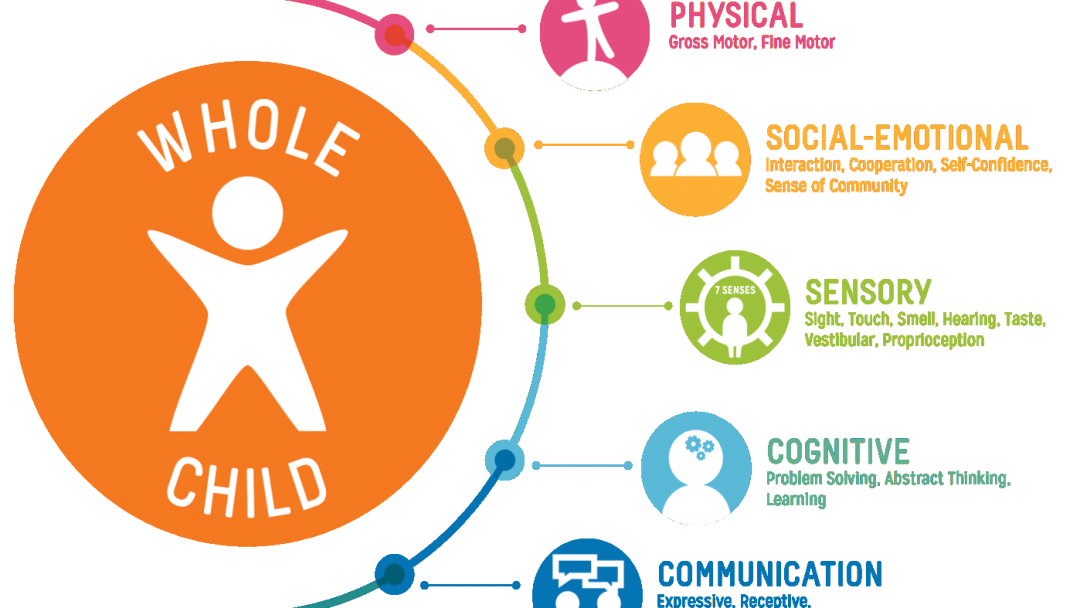
Your child is becoming more social and prefers to play with friends rather than on their own. Your child can share, although they might find it hard to share favourite toys and other things.
Games with rules sometimes challenge your 6-year-old, and your child might even accuse others of cheating sometimes.
Feelings
At this age, children can express feelings, although they might need help and time to identify and talk about tricky emotions like frustration or jealousy. They often have much better control over feelings too and might have fewer unexpected outbursts of anger and sadness.
You might see more patience, and your child might even be open to reasoning with you. This means there could be fewer disagreements in the future.
Although your 6-year-old loves to be independent, they still need your love and attention. Connecting with you and family is the most important thing in your child’s life. Your child is proud of their own achievements, wants your approval – and probably doesn’t take well to criticism.
Your child’s growing understanding of the world around them might lead to some fears. For example, children might be afraid of criticism, tests, failure, physical harm or threat, or supernatural things like ghosts.
Thinking
School-age children can pay attention for longer now.
Your child understands simple concepts like time (today, tomorrow, yesterday), knows the seasons, recognises some words by sight and tries to sound out words. Your child might even read on their own.
Your child is better at seeing other people’s points of view, which helps your child to make friends and meet new people.
Talking and communicating
At this age children talk a lot, sometimes even when nobody is in the room.
You’ll hear your child using full and complex sentences and having adult-like conversations, although they might still find it hard to describe complex ideas or events. Your child understands and usually enjoys jokes and riddles – jokes about poos and wees are particularly funny.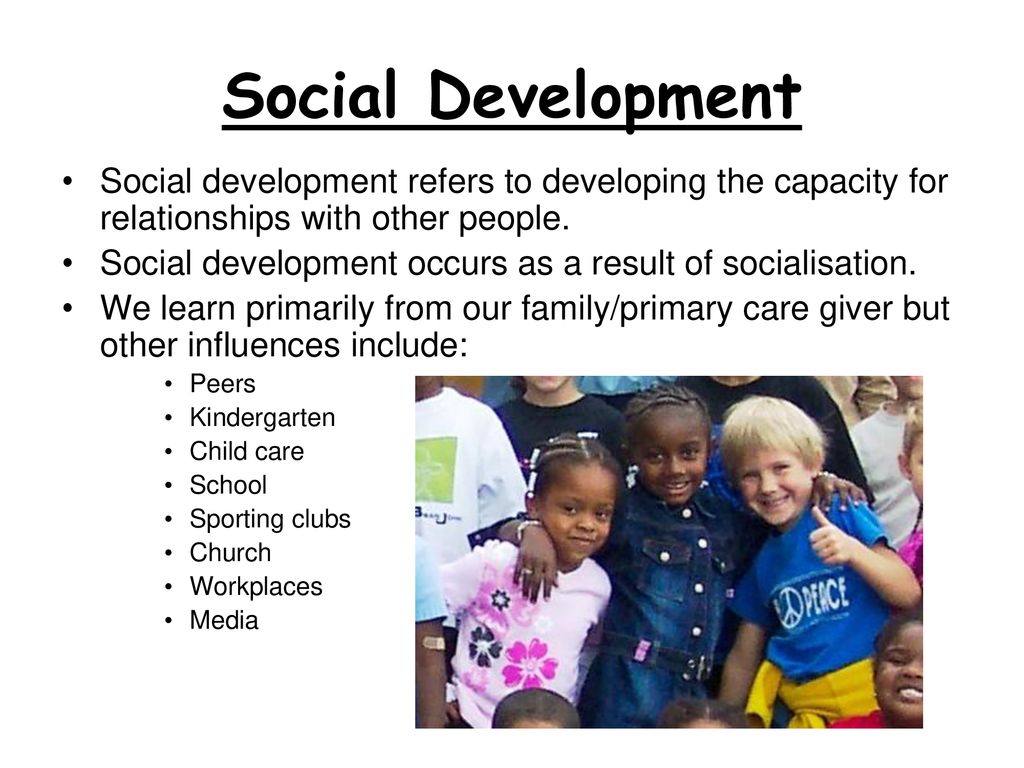 Your child also enjoys the opportunity to do ‘show and tell’ at school.
Your child also enjoys the opportunity to do ‘show and tell’ at school.
Your child understands more words than they can say, and they’re learning as many as 5-10 new words each day. Vocabulary growth is so rapid at this age that your child’s brain often thinks faster than your child can speak.
Moving
At 5 years, children are more coordinated and love to show off new physical skills – you’ll often hear shouts of ‘Look at me!’
Your child can learn how to ride a bike, jump rope, balance on one foot for a short period of time, walk downstairs without needing to hold your hand, skip and catch a large ball. Many 6-year-olds will also be interested in playing team sports like soccer.
Does it seem like your 6-year-old can’t ever keep still? Wriggling while watching TV, at the dinner table or even while sleeping is quite common.
Your child’s fine motor skills are improving, which leads to more independence with things like tying shoelaces, using zips and buttons, and brushing hair.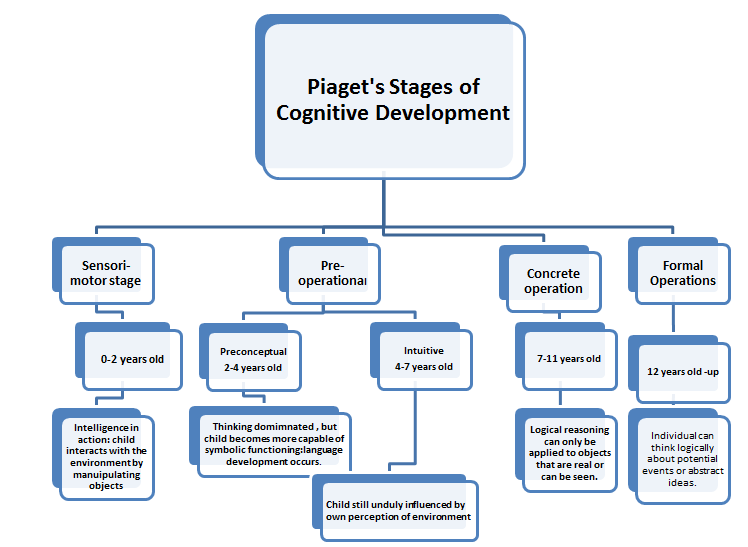 Your child might still find it hard to cut up food with a knife but enjoys the chance to practise.
Your child might still find it hard to cut up food with a knife but enjoys the chance to practise.
Daily life and behaviour
At this age, children are becoming more independent and love making small decisions, like what clothes to wear or what to eat for lunch.
Starting school opens up a whole new social world, which comes with a new set of rules. This might be demanding or challenging for your child. School can be tiring so you might notice that your child is easily upset, especially after a long day. On these days you might want to keep your child quiet at home after school and aim for an early bedtime.
Whether your child is feeling worried about starting school or bursting with excitement, a bit of planning and preparation can ease the transition.
At this age, your child might also:
- copy simple shapes with a pencil
- copy letters and write their own name
- say their full name, address, age and birthday
- draw more realistic pictures – for example, a person with a head with eyes, mouth and nose, and a body with arms and legs
- read simple picture books
- understand the importance of rules, and the simple reasons behind rules.
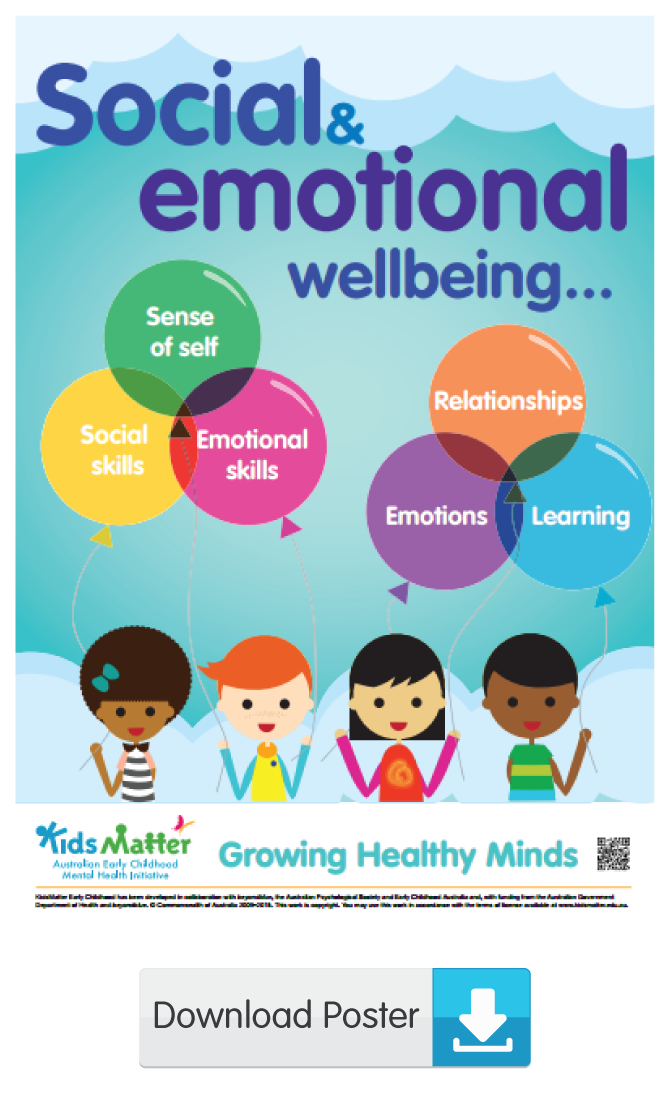
Helping child development at 5-6 years
Here are simple things you can do to help your child’s development at this age:
- Encourage physical activity: play different sports and do recreational activities together or with others. These teach social skills like taking turns, cooperating, negotiating, playing fairly and being a good sport.
- Include your child in simple household chores: setting the table or helping you to put clean clothes away develops moving and thinking skills, while also teaching cooperation and responsibility. These skills are important for school.
- Make time for play each day. Play can include outdoor play, imaginative and creative activities, digital play, physical play and more. It's also important for your child to have time for free play.
- Play with your child each day, even if it’s just for 10 minutes. Playing together gives you the chance to enter your child’s world and find out about their thoughts and feelings.
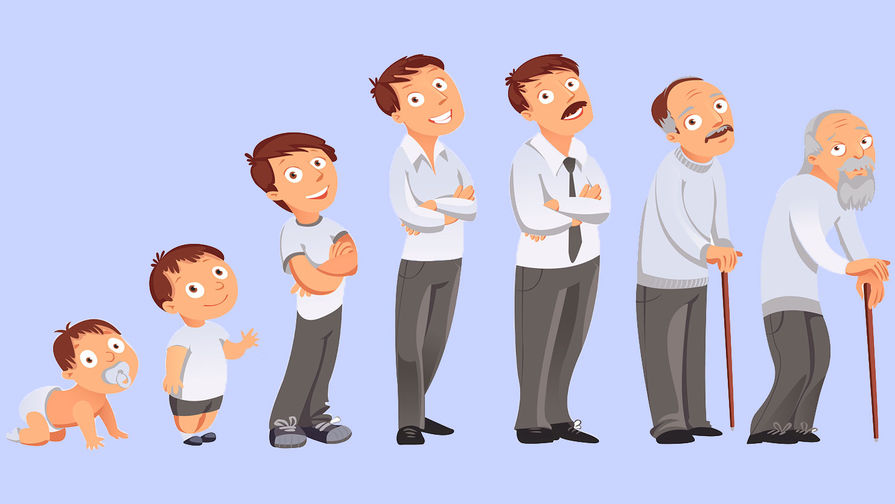 It also shows your child that you care about them and want to spend time together.
It also shows your child that you care about them and want to spend time together. - Read with your child. Reading is important for literacy development. You can also try literacy activities like telling stories or making your own book.
- Practise classroom behaviour: for example, you could give your child small tasks that need attention or involve following rules or instructions. Have conversations about your child’s favourite animal or sport and encourage your child to listen, respond and question. This all helps your child get ready for school.
- Arrange playdates: spending time with other children, especially if they go to the same school, helps with social skills and gets your child used to being apart from you.
- Talk about feelings: you can help your child work out why they’re feeling something and help them put words to these feelings. This will help your child form friendships and show empathy.
Parenting a school-age child
As a parent, you’re always learning. It’s OK to feel confident about what you know. And it’s OK to admit you don’t know something and ask questions or get help.
It’s OK to feel confident about what you know. And it’s OK to admit you don’t know something and ask questions or get help.
It’s also important to look after yourself. Looking after yourself physically, mentally and emotionally is good for you, and it’s good for your child. When you’re well, you can give your child the loving attention they need to grow and thrive. You can also guide your child’s behaviour in positive ways, even when you find their behaviour challenging.
And remember that part of looking after yourself is asking for help, especially if you’re feeling stressed, anxious or angry. There are many people who can support you and your child, including your partner, friends, relatives and GP.
Never shake, hit or verbally abuse a child. You risk harming your child, even if you don’t mean to. If you feel like you can’t cope, it’s OK to take some time out until you feel calmer. Gently put your child in a safe place like their bedroom. Go to another room to breathe deeply, or call your state or territory parenting helpline.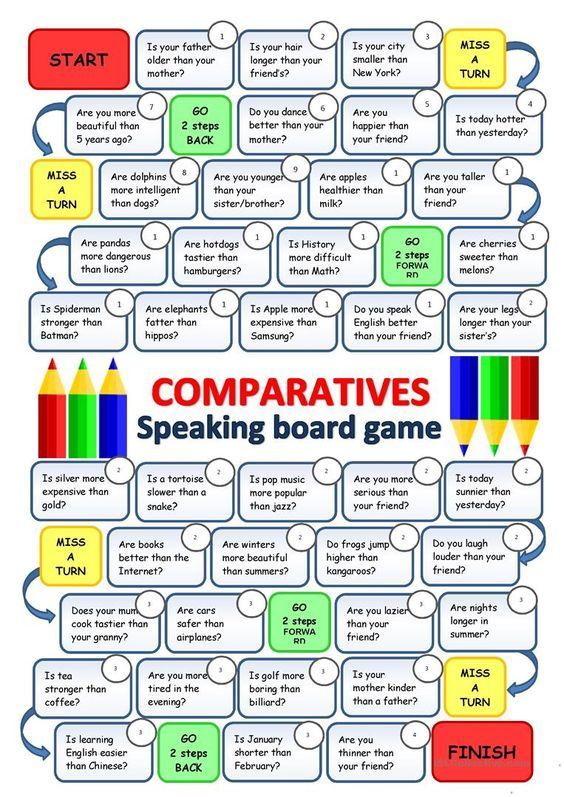
When to be concerned about child development at 5-6 years
You know your child best. So it’s a good idea to see your GP if you have any concerns or notice that your child has any of the following issues at 5-6 years.
Communicating and understanding
Your child:
- is difficult to understand or isn’t speaking in full sentences
- can’t understand multi-step, complex instructions like ‘Please put the soccer ball away, wash your hands, and sit down for dinner’.
Behaviour and play
Your child:
- has tantrums whenever they don’t get their own way
- doesn’t show empathy – for example, doesn’t try to comfort others who are hurt or upset
- shows no interest in letters or trying to write their own name
- is very withdrawn, worried or depressed or gets very upset when separating from you
- doesn’t interact well with others – for example, is aggressive or shows no interest in interacting with other children or adults.
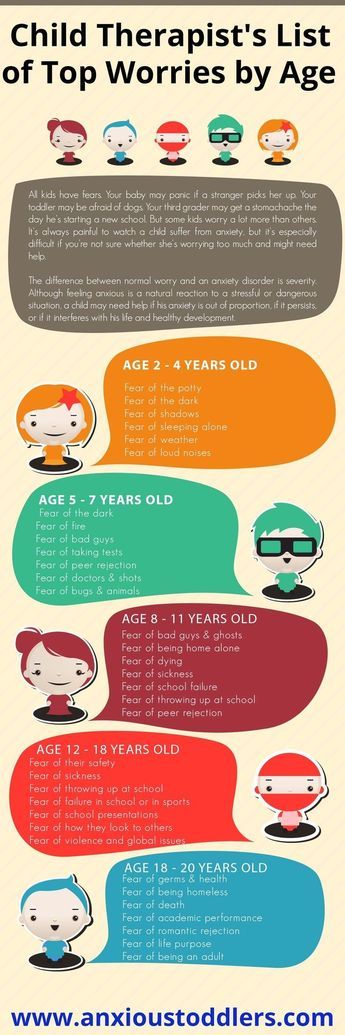
Everyday skills
Your child:
- still wets or soils their pants during the day, but note that night-time wetting is typical up until the age of 6-7 years, especially for boys
- has difficulty falling asleep at night or staying asleep.
See a child health professional if at any age your child experiences a noticeable and consistent loss of skills.
Development usually happens in the same order in most children, but skills might develop at different ages or times. If you’re wondering whether your child’s development is on track, or if you feel that something isn’t quite right, it’s best to get help early. See your GP.
Social development of preschoolers: stages, factors, means
Everyone knows that childhood is a special and unique period in everyone's life. In childhood, not only the foundations of health are laid, but also a personality is formed: its values, preferences, guidelines. The way a child's childhood passes directly affects the success of his future life. A valuable experience of this period is social development. The psychological readiness of a child for school largely depends on whether he knows how to build communication with other children and adults, and how to cooperate with them correctly. It is also important for a preschooler how quickly he acquires knowledge appropriate to his age. All these factors are the key to successful study in the future. Next, about what you need to pay attention to in the social development of a preschooler. nine0003
A valuable experience of this period is social development. The psychological readiness of a child for school largely depends on whether he knows how to build communication with other children and adults, and how to cooperate with them correctly. It is also important for a preschooler how quickly he acquires knowledge appropriate to his age. All these factors are the key to successful study in the future. Next, about what you need to pay attention to in the social development of a preschooler. nine0003
-
1 What is social development
-
1.1 In the video, the teacher shares the experience of socialization of preschoolers
-
-
2 Stages of social development of a child
-
3 Social factors
-
4 Social education and its means
-
5 Social development in kindergarten
-
6 Development of social skills
nine0005 -
8 Social exclusion
-
9 Terminals
7 Social adaptation of children
What is social development
What does the term "social development" (or "socialization") mean? This is a process in which the child adopts the traditions, values, culture of the society in which he will live and develop.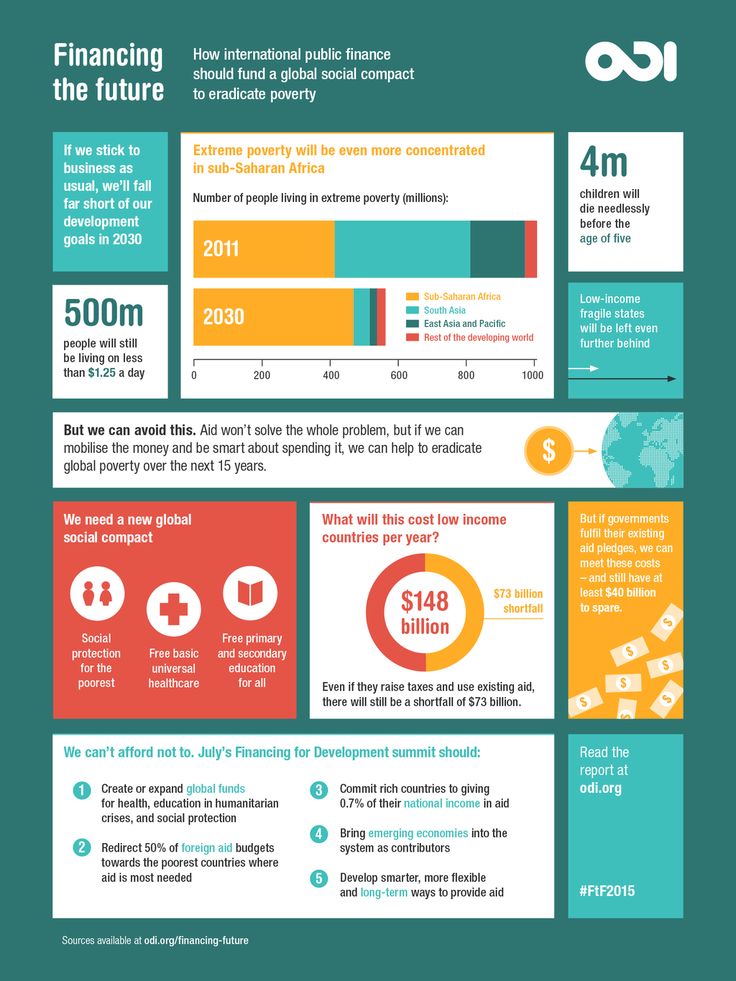 That is, the baby is the basic formation of the original culture. Social development is carried out through communication with peers and adults. When communicating, the child begins to live by the rules, trying to take into account his interests and interlocutors, adopts specific behavioral norms. The environment surrounding the baby, which also directly affects its development, is not just the outside world with streets, houses, roads, objects. Environment - first of all, these are people who interact with each other according to certain rules that prevail in society. Any person who meets on the way of a child brings something new into his life, thus directly or indirectly shaping him. The adult demonstrates knowledge, skills and abilities regarding how to make contact with people and objects. The child, in turn, inherits what he sees, copies it. Using this experience, children learn to communicate in their own little world with each other. nine0003
That is, the baby is the basic formation of the original culture. Social development is carried out through communication with peers and adults. When communicating, the child begins to live by the rules, trying to take into account his interests and interlocutors, adopts specific behavioral norms. The environment surrounding the baby, which also directly affects its development, is not just the outside world with streets, houses, roads, objects. Environment - first of all, these are people who interact with each other according to certain rules that prevail in society. Any person who meets on the way of a child brings something new into his life, thus directly or indirectly shaping him. The adult demonstrates knowledge, skills and abilities regarding how to make contact with people and objects. The child, in turn, inherits what he sees, copies it. Using this experience, children learn to communicate in their own little world with each other. nine0003
It is known that individuals are not born, but become. And the formation of a fully developed personality is greatly influenced by communication with people. That is why parents should pay enough attention to the formation of the child's ability to find contact with other people.
And the formation of a fully developed personality is greatly influenced by communication with people. That is why parents should pay enough attention to the formation of the child's ability to find contact with other people.
In the video, the teacher shares his experience of socialization of preschoolers
“Do you know that the main (and first) source of a child's communicative experience is his family, which is a “guide” to the world of knowledge, values, traditions and experience of modern society. It is from parents that you can learn the rules of communication with peers, learn to communicate freely. A positive socio-psychological climate in the family, a warm homely atmosphere of love, trust and mutual understanding will help the baby adapt to life and feel confident.” nine0065
Stages of social development of a child
- Infancy.
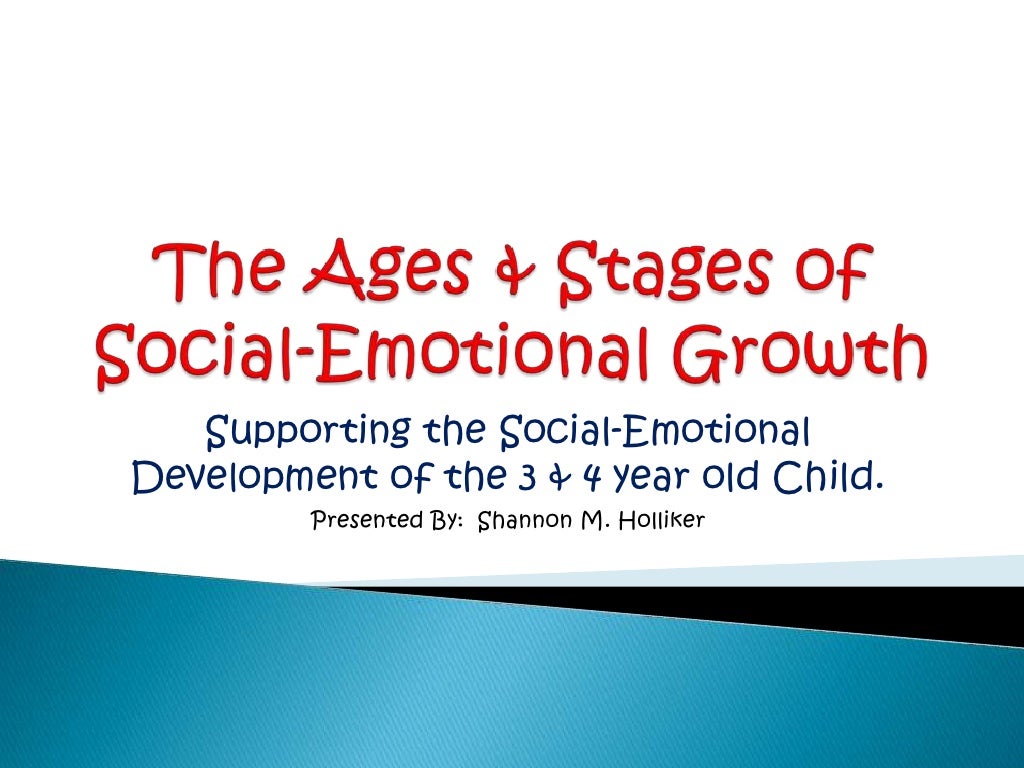 Social development begins in a preschooler as early as infancy. With the help of a mother or another person who often spends time with a newborn, the baby learns the basics of communication, using communication tools such as facial expressions and movements, as well as sounds.
Social development begins in a preschooler as early as infancy. With the help of a mother or another person who often spends time with a newborn, the baby learns the basics of communication, using communication tools such as facial expressions and movements, as well as sounds. - Six months to two years. The baby's communication with adults becomes situational, which manifests itself in the form of practical interaction. A child often needs the help of parents, some joint actions for which he applies. nine0012
- Three years. In this age period, the baby already requires society: he wants to communicate in a team of peers. The child enters the children's environment, adapts to it, accepts its norms and rules, and parents actively help in this. They tell the preschooler what to do and what not to do: is it worth taking other people's toys, is it good to be greedy, is it necessary to share, is it possible to offend children, how to be patient and polite, and so on.

- Four to five years. nine0073 This age segment is characterized by the fact that babies begin to ask an infinite number of questions about everything in the world (which are not always answered even by adults!). Communication of a preschooler becomes brightly emotionally colored, aimed at cognition. The speech of the baby becomes the main way of his communication: using it, he exchanges information and discusses with adults the phenomena of the world around him.
- Six to seven years. The child's communication takes on a personal form. At this age, children are already interested in questions about the essence of man. This period is considered the most important in the formation of the personality and citizenship of the child. A preschooler needs an explanation of many life moments, advice, support and understanding from adults, because they are a role model. Looking at adults, six-year-olds copy their style of communication, relationships with other people, and the peculiarities of their behavior.
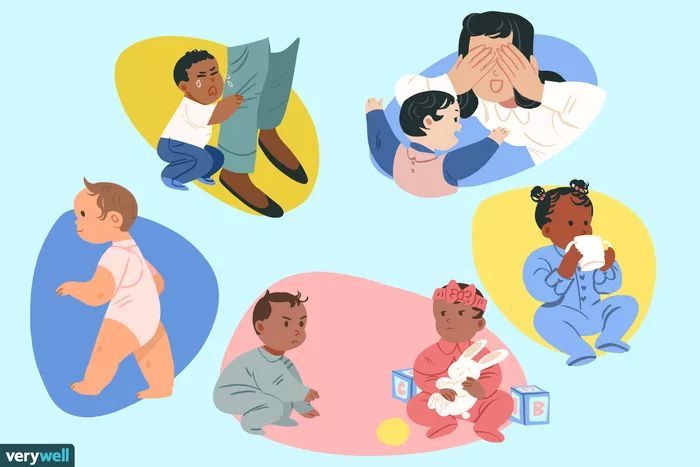 This is the beginning of the formation of your personality. nine0012
This is the beginning of the formation of your personality. nine0012
Social factors
What influences the baby's socialization?
- family
- kindergarten
- child's environment
- children's institutions (kindergarten, development center, circles, sections, studios)
- child activities
- television, children's press
- literature, music
- nature
All this makes up the child's social environment.
Raising a child, do not forget about the harmonious combination of various ways, means and methods. nine0003
Social education and its means
Social education of preschoolers is the most important aspect of a child's development, because preschool age is the best period for a child's development, development of his communicative and moral qualities. At this age, there is an increase in the volume of communication with peers and adults, the complication of activities, the organization of joint activities with peers.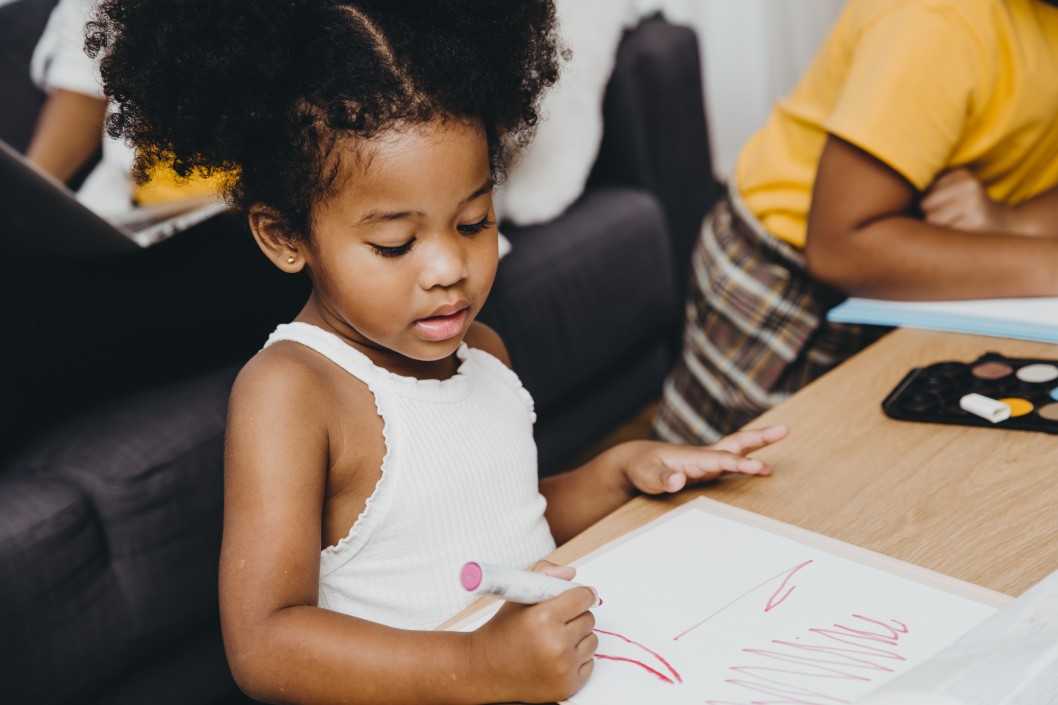 Social education is interpreted as the creation of pedagogical conditions for the purpose of positive development of a person's personality, his spiritual and value orientation. nine0003
Social education is interpreted as the creation of pedagogical conditions for the purpose of positive development of a person's personality, his spiritual and value orientation. nine0003
Let's list the main means of social education of preschoolers :
- Game.
- Communication with children.
- Conversation.
- Discussing the actions of the child.
- Exercises for the development of horizons.
- Reading.
The main activity of preschool children and an effective means of social education is role-playing game . By teaching the kid such games, we offer him certain patterns of behavior, actions and interactions that he can play. The child begins to think about how relations between people take place, realize the meaning of their work. In their games, the baby most often imitates the behavior of adults.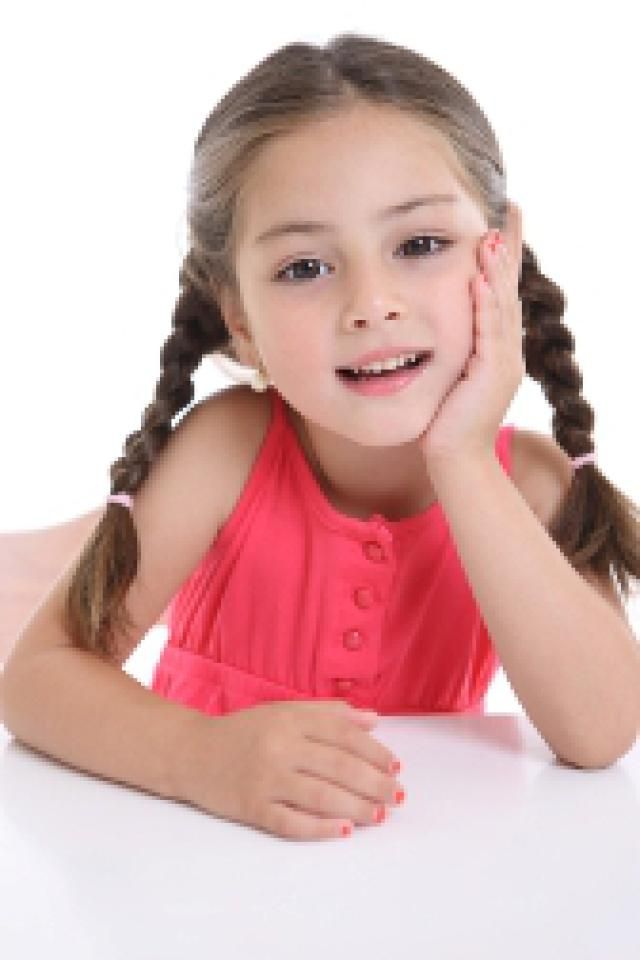 Together with his peers, he creates game-situations where he “tryes on” the roles of fathers and mothers, doctors, waiters, hairdressers, builders, drivers, businessmen, etc.
Together with his peers, he creates game-situations where he “tryes on” the roles of fathers and mothers, doctors, waiters, hairdressers, builders, drivers, businessmen, etc.
“It is interesting that by imitating different roles, the child learns to perform actions, coordinating them with the moral norms prevailing in society. So the baby unconsciously prepares himself for life in the world of adults.
Such games are useful in that while playing, a preschooler learns to find solutions to various life situations, including conflict resolution.
“Council. Conduct exercises and activities for the child more often that develop the horizons of the baby. Introduce him to the masterpieces of children's literature and classical music. Study colorful encyclopedias and children's reference books. Do not forget to talk with the child: kids also need an explanation of their actions and advice from parents and teachers.
nine0065
Social development in kindergarten
How does kindergarten influence successful socialization of a child?
In the kindergarten:
- a special social-forming environment was created
- organized communication with children and adults
- organized gaming, labor and educational activities
- civil-patriotic orientation is being implemented
- organized interaction with the family
- introduced the principles of social partnership. nine0012
The presence of these aspects determines the positive impact on the child's socialization.
There is an opinion that going to kindergarten is not necessary at all. However, in addition to general developmental activities and preparation for school, a child who goes to kindergarten also develops socially. All conditions for this have been created in the kindergarten:
- zoning
- play and educational equipment
- games
- didactic and teaching aids
- the presence of a children's team
- communication with adults.

All these conditions simultaneously include preschoolers in intensive cognitive and creative activities that ensure their social development, form communication skills and the formation of their socially significant personal characteristics.
It will not be easy for a child who does not attend kindergarten to organize a combination of all the above developmental factors.
Development of social skills
The development of social skills in preschool children has a positive effect on their activities in life. General upbringing, manifested in graceful manners, easy communication with people, the ability to be attentive to people, try to understand them, sympathize, and help are the most important indicators of the development of social skills. Also important is the ability to talk about your own needs, set goals correctly and achieve them. In order to direct the upbringing of a preschooler in the right direction of successful socialization, we suggest following the aspects of developing social skills:
- Show your child social skills.
 In the case of babies: smile at the baby - he will answer you the same. This will be the first social interaction.
In the case of babies: smile at the baby - he will answer you the same. This will be the first social interaction. - Talk to the baby. Answer the sounds made by the baby with words, phrases. This way you will establish contact with the baby and soon teach him to speak.
- Teach your child to be attentive. It is not necessary to bring up an egoist: more often let the child understand that other people also have their own needs, desires, concerns. nine0012
- When educating, be kind. In upbringing, stand on your own, but without shouting, but with love.
- Teach your child respect. Explain that objects have value and should be treated with care. Especially if it's someone else's stuff.
- Learn to share toys. This will help him make friends faster.
- Create a social circle for your baby. Strive to organize the communication of the baby with peers in the yard, at home, in a children's institution.
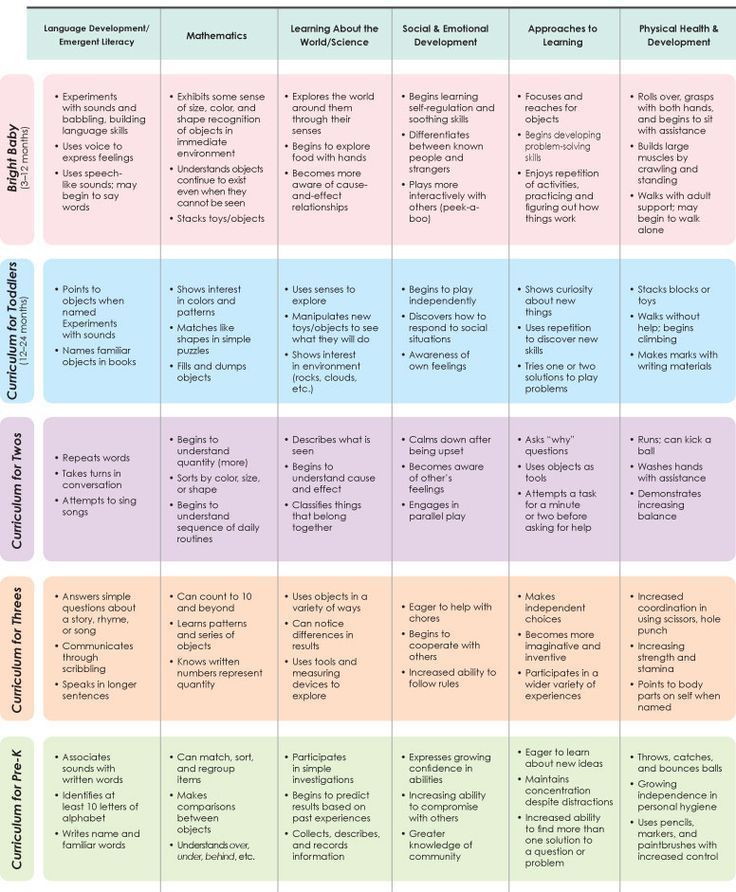 nine0012
nine0012 - Praise good behavior. The child is smiling, obedient, kind, gentle, not greedy: why not praise him? He will consolidate the understanding of how to behave better, and acquired the necessary social skills.
- Talk to your child. Teach preschoolers to communicate, share experiences, analyze actions.
- Encourage mutual assistance, attention to children. Discuss situations from the child's life more often: in this way he will learn the basics of morality. nine0012
Social adaptation of children
Social adaptation is a prerequisite and the result of successful socialization of a preschooler.
It occurs in three areas:
- activity
- consciousness
- communication.
Field of activity implies a variety and complexity of activities, a good command of each of its types, its understanding and possession of it, the ability to carry out activities in various forms. nine0003
nine0003
Indicators of a developed sphere of communication are characterized by the expansion of the child's circle of communication, the deepening of the quality of its content, the possession of generally accepted norms and rules of behavior, the ability to use its various forms and types suitable for the child's social environment and society.
The developed sphere of consciousness is characterized by work on the formation of the image of one's own "I" as a subject of activity, understanding one's social role, and the formation of self-esteem. nine0003
During the socialization of a child, along with the desire to do everything as everyone else does (mastering the generally accepted rules and norms of behavior), a desire is manifested to stand out, to show individuality (development of independence, one's own opinion). Thus, the social development of a preschooler occurs in harmoniously existing directions:
- socialization
- individualization.

In the case when a balance is established between socialization and individualization during socialization, an integrated process takes place aimed at the successful entry of the child into society. This is social adaptation. nine0003
Social maladaptation
If, when a child enters a certain group of peers, there is no conflict between generally accepted standards and individual qualities of the child, then it is considered that he has adapted to the environment. If such harmony is violated, then the child may show self-doubt, isolation, depressed mood, unwillingness to communicate, and even autism. Children rejected by a certain social group are aggressive, non-contact, inadequately evaluating themselves. nine0003
It happens that the socialization of a child is complicated or slowed down due to physical or mental reasons, as well as as a result of the negative influence of the environment in which he grows up. The result of such cases is the appearance of asocial children, when the child does not fit into social relations.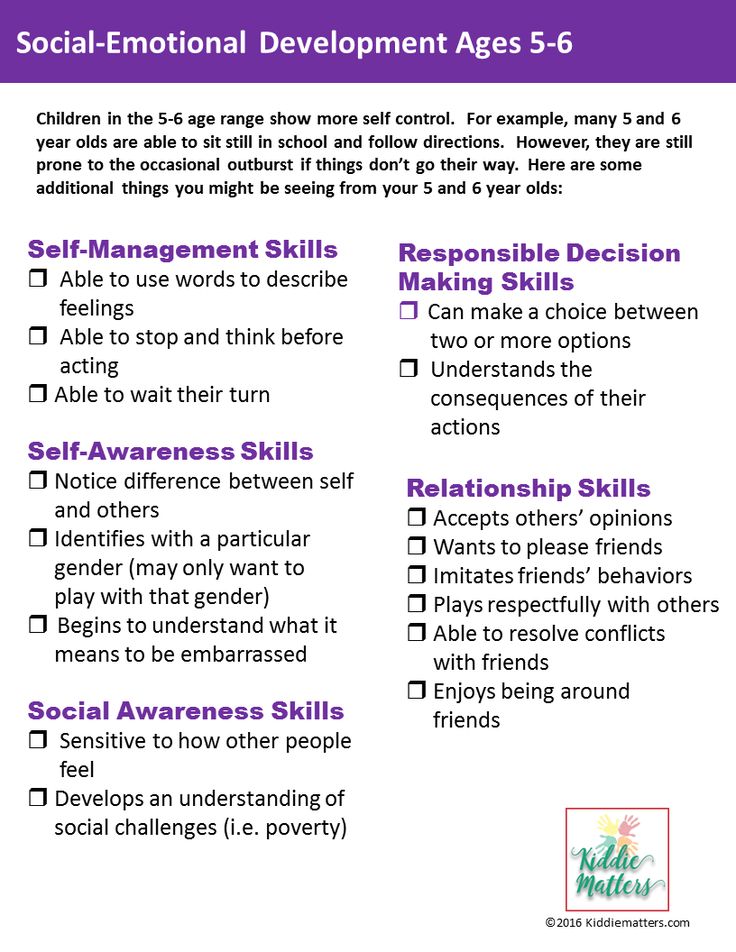 Such children need psychological help or social rehabilitation (depending on the degree of complexity) for the proper organization of the process of their adaptation to society. nine0003
Such children need psychological help or social rehabilitation (depending on the degree of complexity) for the proper organization of the process of their adaptation to society. nine0003
Conclusions
If you try to take into account all aspects of the harmonious upbringing of the child, create favorable conditions for all-round development, maintain friendly relations and promote the disclosure of his creative potential, then the process of social development of the preschooler will be successful. Such a child will feel confident, which means he will be successful.
How to make a child's social development harmonious and comprehensive?
home
Knowledge base
Social development of a preschooler: stages and tips
- What is social development?
- Stages of social development of a preschooler
- Socialization up to three years
- Socialization of children from 3 to 7 years old
The social development of a preschool child is an important task for parents, because socialization is one of the main skills for a harmonious existence in society.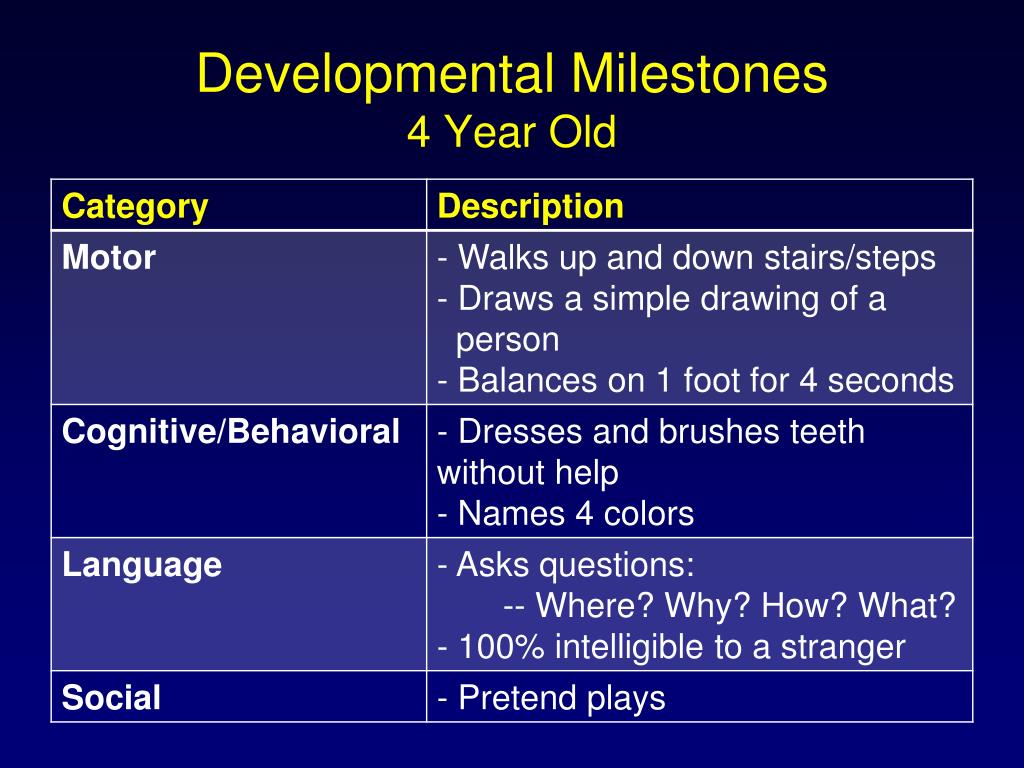 A socialized person feels more confident, he is more successful in any situation, he develops a basic trust in the world. nine0351
A socialized person feels more confident, he is more successful in any situation, he develops a basic trust in the world. nine0351
What is social development?
Social development is part of the overall development of the child. It includes not only the ability of the baby to communicate, but also acquaintance with the culture and traditions of society, the development of emotional intelligence, the ability to resolve conflict situations in a peaceful way. This is a multifaceted skill that begins to form in children from birth.
Stages of social development of a preschooler
The first natural environment for social development is the family. Here, even in infancy, the baby receives the first lessons of communication, learns to recognize emotions by facial expressions, intonations, gestures. nine0003
Until the age of two, children are completely dependent on their parents. And although at this age they can already communicate with their peers, purposeful play does not work.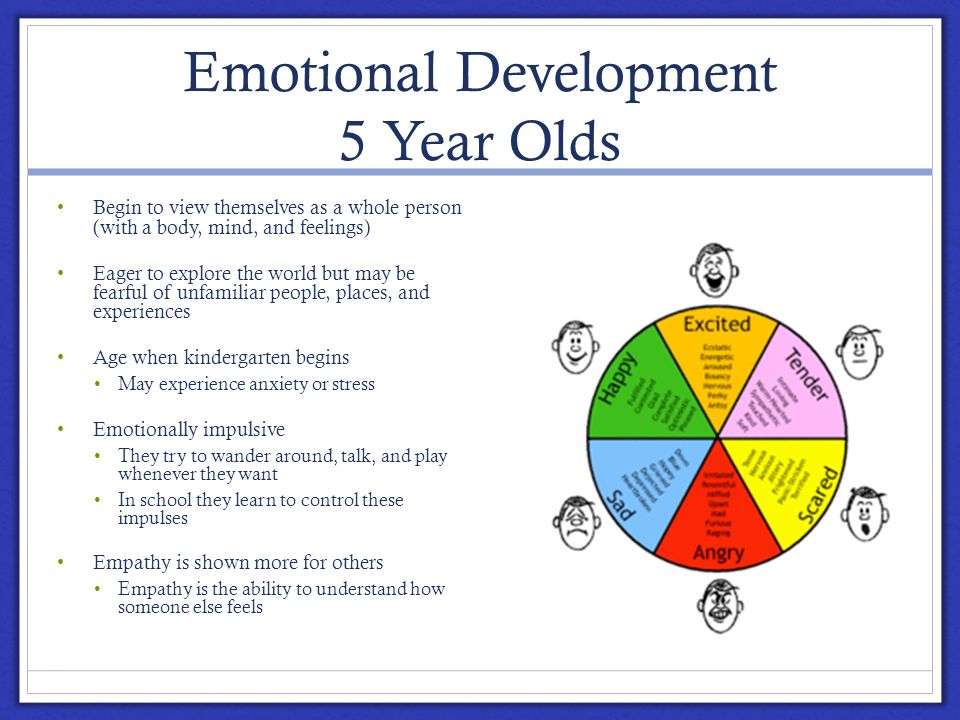 Children often play side by side, but not together.
Children often play side by side, but not together.
From the age of three, a child begins to consciously communicate with other children, learns to play. During this period, it is important to pay more attention to the development of emotional intelligence and learn to build relationships with others. To do this, it is useful to send the child to a developmental center for children. nine0003
From 5 to 7 years old, a preschooler begins to be interested in the essence of a person, a breakthrough occurs in the mental development of the child. At this age, it is especially important to set a positive example of family relationships. Now, behavioral patterns are being laid that will guide the child in the future.
Socialization up to three years
From an early age, it is worth explaining to the baby the rules of safe functioning in the outside world. It is useful to play situations at home, for example, with the help of toys. A role-playing game is one of the best ways to introduce a child to the laws of the world and the spectrum of emotions experienced by a person.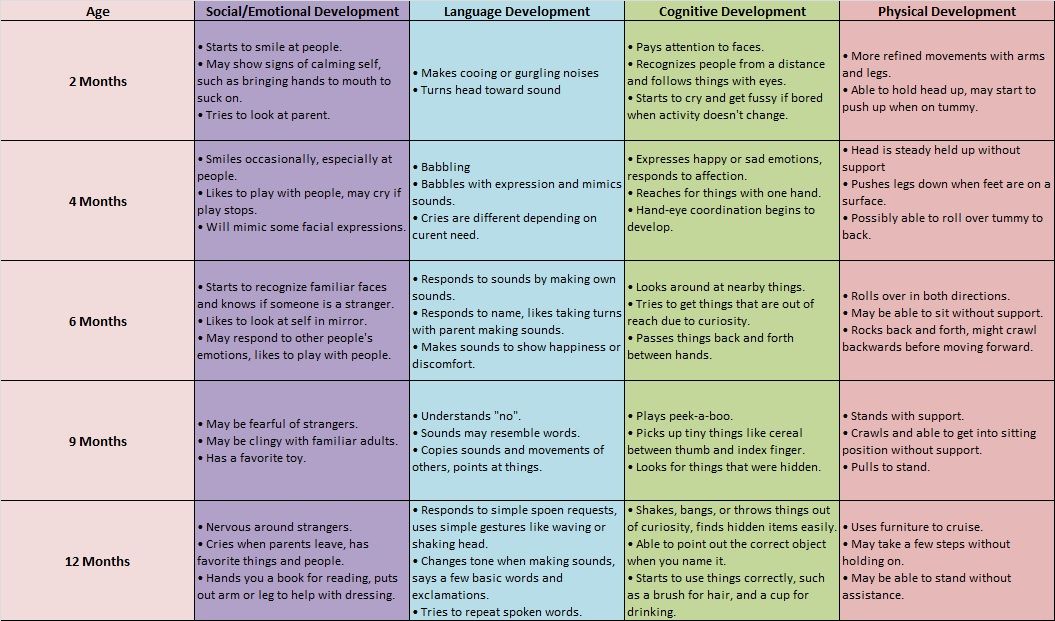 nine0003
nine0003
Socialization of children from 3 to 7 years old
- Teach your child to talk calmly about his desires. Learn to negotiate in controversial situations without conflicts. To do this, speak calmly and confidently yourself, do not raise your tone.
- It is important to establish social boundaries by explaining what is allowed and what is not. The concept of "impossible" needs to be deciphered and an answer to the question "why not?" This will save the baby to check the ban on himself.
- Teach your child to be attentive to others - create situations in which he can take care of his neighbor. nine0012
- Respect the interests, hobbies and desires of children.
- It is useful to talk with an older preschooler and analyze his actions and the actions of those around him. Ask his opinion about why the person did this? What feelings moved them? This teaches children to better understand others.
- Give the preschooler more independence.
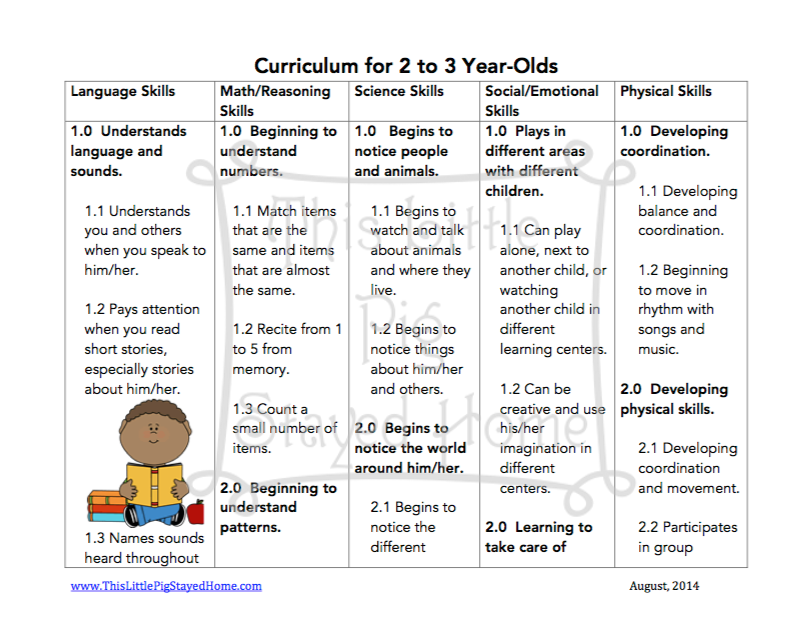
- Encourage contact with other children and do not criticize friends. You can express disapproval of the actions of another child, but at the same time you need to give an objective explanation. nine0012
- For the socialization of the child, harmonious conditions for the development of the child in the family are necessary, but communication with peers is also necessary. Therefore, choose a good kindergarten and preschool center.
The children's center "Imena Production" invites your children to classes for preschoolers. With us, children not only master intellectual and creative disciplines, but also learn to communicate, make new friends. For the little ones, we have an early development course, an important task of which is the adaptation and socialization of children. We invite older children to the discipline of integrated development. Here the child reveals his talent in choreography, acting, vocals, and also develops morally and spiritually in Sunday school. nine0003
nine0003
Social development of the child Comprehensive child development All tags
Our disciplines
Children's theater studio
Vocal
Choreography for children
Acting
Stage speech
History of Russia for children
Art history for children 9002 Educational classes with a psychologist
003
Preparation for school
Early development
English
Speech therapist
Sunday school
Catechism for adults
Psychologist
Business School
Complex development
TRIZ
Rice
Other articles
New! How to turn a hobby into a profession?
Read more
